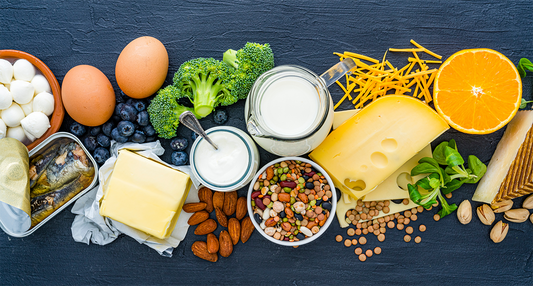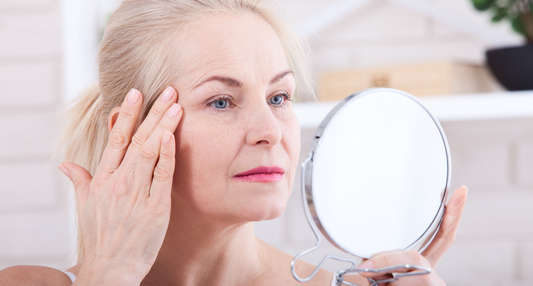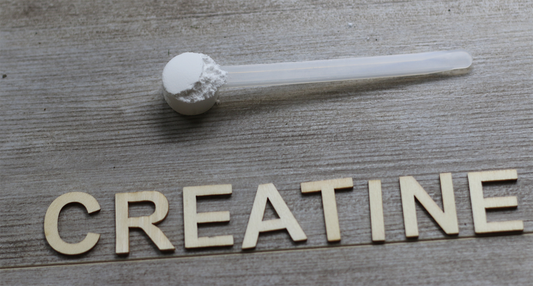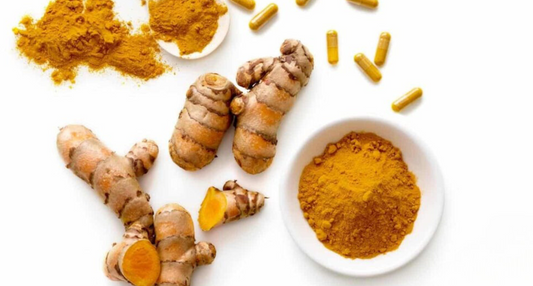How Does Nutrition Affect Menopause?

Share
Put Food To Work For You
Better Nutrition Can Improve Menopause Symptoms.
It may seem simple, but what you put in your mouth really does have a profound impact on your health. Food choices can either help or hinder the processes in your body, especially for women in midlife. Some foods help stabilize blood-sugar levels, reduce inflammation, and promote muscle growth and strength, while others can wreak havoc on your body.
Nutrition Affects Menopause Symptoms
The declining estrogen levels during menopause mean that women’s bodies have different nutritional needs than earlier in life. What used to sustain us now needs a little tweaking to keep us strong and moving ahead in our active lives.
Choosing the “right” foods provides the fuel we need to fight the changes that occur in midlife. Better nutrition can help reduce hot flashes, improve sleep, improve cardiovascular health, increase bone density and muscle mass, and maintain a healthy weight.
What’s On The Menu?
Studies show that women who eat diets rich in whole foods have better overall health and fewer menopause symptoms. Fresh fruits and vegetables, whole grains, high-quality protein, and healthy fats should fill your meals and snacks, while limiting your intake of added sugars, processed carbohydrates, and alcohol. Swap out processed foods (basically anything that comes in a box or a bag at the grocery store) for inflammation-fighting foods and muscle-building proteins.
Fruits And Vegetables
American dietary guidelines recommend that fruits and vegetables fill half of your plate for each meal. A recent study found that menopausal women who eat more vegetables, fruit, fiber, and soy had a 19 percent reduction in hot flashes.
Whole Grains
Women in midlife have an increased risk of cardiovascular health problems, and whole grains are a good way to help reduce that risk. Choosing quality, whole-grain carbohydrates packed with fiber has been shown to reduce the risk of heart disease.
High-Quality Protein
As estrogen levels drop during perimenopause and menopause, women lose muscle mass which contributes to the growth of visceral body fat. Choosing high-quality proteins like lean meat, fish, nuts, and eggs helps rebuild what is lost. Getting enough protein in your diet has a positive impact on muscle and bone growth, thyroid function, digestion, and sex hormones.
Healthy Fats
Good fats improve heart health, reduce inflammation, and reduce hot flashes and night sweats. Focus on omega-3 fatty acids that are found in fish, such as salmon, and seeds, particularly chia and flax.
Making Changes To Your Nutrition
It’s never too late to start making changes for better health. The Galveston Diet is a scientific, evidence-based approach to tackle the hormonal changes that affect wellbeing during menopause. By choosing foods that reduce inflammation and refocusing your body’s source of fuel, you can feel better overall. To see if your current diet is causing or contributing to inflammation, take the Anti-Inflammation quiz.
Fight Menopause Symptoms
Anti-Inflammatory Foods:
- Vegetables including dark leafy greens, asparagus, artichokes, beets, broccoli, cauliflower, bell peppers, tomatoes, etc.
- Omega-3 fatty acids found in fatty fish, nuts and seeds
- Spices, especially garlic, ginger and turmeric
- Berries and other fruits
High-Quality Proteins:
- Eggs
- Full-fat Greek yogurt
- Fish, seafood and shellfish
- Chicken, turkey, pork, lean beef, bison
- Quinoa, edamame, tofu, tempeh, fortified nutritional yeast
Sources:
- Menopause Diet: How What You Eat Affects Your Symptoms (healthline.com)
- Effects of a dietary intervention and weight change on vasomotor symptoms in the Women’s Health Initiative – PMC (nih.gov)
- Whole grain consumption and risk of cardiovascular disease, cancer, and all cause and cause specific mortality: systematic review and dose-response meta-analysis of prospective studies – PubMed (nih.gov)
- Changes in muscle mass and strength after menopause – PubMed (nih.gov)
- Flaxseed reduces total and LDL cholesterol concentrations in Native American postmenopausal women – PubMed (nih.gov)










